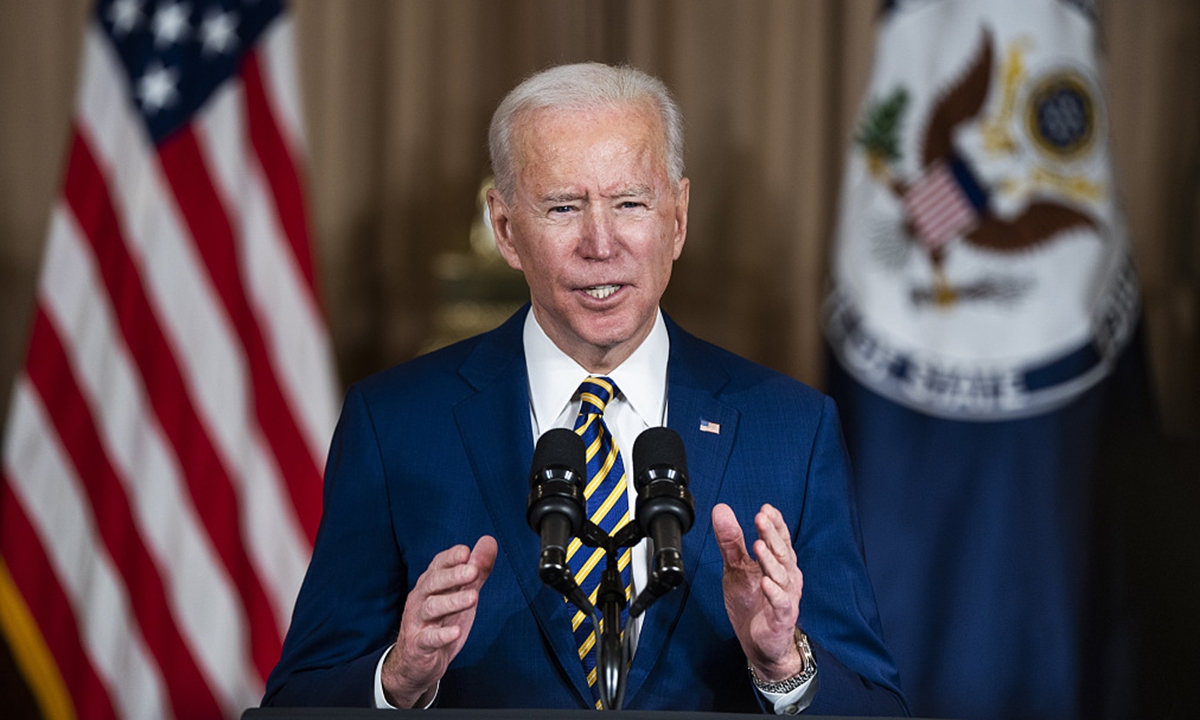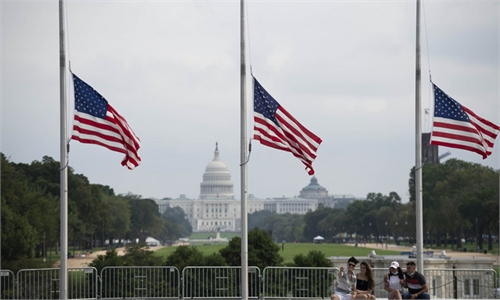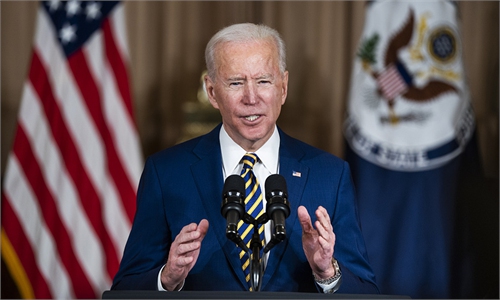
Biden Photo: CFP
Some Democrats have started to compare US President Joe Biden with former president Franklin Delano Roosevelt (FDR). They claim that if Biden follows the current policy path, he will not only be reelected but also make America truly great again.Roosevelt, who led the US to victory in World War II and seeded the soil for the country to become a superpower, is considered to be the founder of the modern US social welfare system. Roosevelt's New Deal includes a series of programs, public work projects, financial reforms, and regulations enacted between 1933 and 1939. They had certain elements of democratic socialism. As early as the 1930s, the US started to pay attention to the Sweden model that featured facets of democratic socialism.
This came from late US journalist Marquis W. Childs, who wrote a book titled Sweden: The Middle Way. The book chronicled Childs' researches on the reform policies of the Swedish Social Democratic Party based on his visits to the North European country as a reporter. The book was published in 1936, triggering enormous attention in the US and becoming a bestseller. The term "middle way" thus became a political buzzword.
At that time, the US was mired in the Great Depression. "[The book] reads like the best political news in years," wrote one reviewer in the New York Herald Tribune. Many US journalists noticed that at the Democratic National Convention in Philadelphia in 1936, Roosevelt himself held a news conference with the book on the table in front of him.
Obviously, Roosevelt's welfare policies referred to Sweden's measures. The food coupons that some US local governments sent out to low-incomers as subsidies monthly drew on the experience of a social relief plan of Sweden in 1938.
Nonetheless, some policies now under discussion in US Congress are not simply imitations of some European welfare states. Two factors are worth attention.
First, due to the lingering COVID-19 pandemic, these policies have gained support from more and more people, such as minimum wages. Two thirds of Americans surveyed in 2019 by the Pew Research Center supported raising the federal minimum wages, and by August last year, that figure had risen 72 percent, according to an Ipsos poll.
Second, these policies are also supported by many Republicans. Meanwhile, the welfare proposals made by some Republicans are even more radical and competitive with the plans of Democrats.
Recently, US Senator Mitt Romney announced a "Family Security Act," which would provide cash benefit for families, amounting to $350 a month for each young child, and $250 a month for each school-aged child.
This instantly reminded me of Sweden 30 years ago. I was working in Sweden at that time when it implemented such generous policies. A friend of mine who migrated to the country did not go out to work with six children to feed, and the whole family lived on government subsidies.
Steven Klein, a lecturer of political theory at King's College London and author of The Work of Politics: Making a Democratic Welfare State, wrote in Foreign Policy magazine, "What Romney's proposal embodies is essentially an effort to remodel the American welfare state - and, by extension, the Republican Party - along the lines of European Christian democracy."
The "European Christian democracy" model here actually means traditional values. The social welfare system in some European welfare states has evolved from Christian relief ideas. Certain governments have taken over the responsibility of social welfare from the churches since the 19th century.
Two factors contributed to such changes. First, industrialization resulted in more gaps between the rich and poor with a growing number of impoverished people. Second, politics and religions started to separate, and the function of churches was greatly weakened.
But the situation in the US is different. The transformation there has been slower, which focuses more on social and charitable relief. Will the US government take over and manage social welfare more from further reforms? A most important factor in this equation will be how Americans view these changes to their social welfare - from charity relief to a government responsibility.
Observing changes in the US from the other side of the Pacific Ocean, I tend to have a stronger sense that China must deal with its own development well first. When the two countries both shift their focus from tensions to their domestic issues, how will China-US ties change?
Let's leave this question to scholars of international relations.
The author is a senior editor with People's Daily, and currently a senior fellow with the Chongyang Institute for Financial Studies at Renmin University of China. dinggang@globaltimes.com.cn. Follow him on Twitter @dinggangchina




